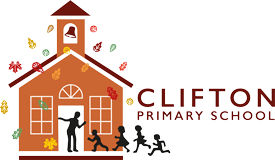
Phonics – curriculum information
A high-quality systematic phonics lesson is taught every day at withernsea in EYFS and Key Stage 1.
We use the Letters and Sounds programme to plan each session carefully to meet the needs of each child. Children in FS1 focus on working through all aspects of phase 1 to prepare them for phase 2.
Aspects of phase 1 are revisited regularly through phase 2 to support the children’s ability to tune into sounds and identify phonemes as they are taught.
Phonics lessons are fun, engaging and are taught in small groups. Once the children start phase 2 they begin to learn GPC (Grapheme Phoneme Correspondence) using flash cards linked to environmental print and with a corresponding action. The combination of visual and kinetic learning helps the children link the grapheme to the letter sounds and consolidate their knowledge. This enables the children to apply their knowledge of GPC to segment and blend words.
The children are encouraged to use their phonetic knowledge when decoding words in reading and applying it to their writing. The children continue working through the six overlapping phonic phases until the end of KS1. The table below is a summary based on the Letters and Sounds guidance for Practitioners and Teachers: Phase Phonic Knowledge and Skills.
Phase One Activities are divided into seven aspects, including environmental sounds, instrumental sounds, body sounds, rhythm and rhyme, alliteration, voice sounds and finally oral blending and segmenting.
Phase Two Learning 19 letters of the alphabet and one sound for each. Blending sounds together to make words. Segmenting words into their separate sounds. Beginning to read simple captions.
Phase Three The remaining 7 letters of the alphabet, one sound for each. Graphemes such as ch, oo, th representing the remaining phonemes not covered by single letters. Reading captions, sentences and questions. On completion of this phase, children will have learnt the “simple code”, i.e. one grapheme for each phoneme in the English language.
Phase Four No new grapheme-phoneme correspondences are taught in this phase. Children learn to blend and segment longer words with adjacent consonants, e.g. swim, clap, jump.
Phase Five Now we move on to the “complex code”. Children learn more graphemes for the phonemes which they already know, plus different ways of pronouncing the graphemes they already know.
Phase Six Working on spelling, including prefixes and suffixes, doubling and dropping letters etc.
How can you help?
Here is a video clip modelling how to correctly pronounce the sounds of the English phonic code…
Sounds of the English phonic code
‘Parents are overwhelmingly supportive, commenting very positively on the school’s many strong features’…
‘Leaders ensure that pupils can develop essential life skills through activities such as learning to dress independently and simple food preparation’…
‘The highly successful promotion of pupils’ spiritual, moral, social and cultural development is at the heart of the school’s work’…
‘Pupils are happy and they feel safe.’…
‘Staff morale is high, team spirit is very strong, and all are committed to continued improvement. This helps to explain why the school is continuing to improve’…
‘The harmonious relationships among all groups, from a wide variety of backgrounds, are a strength of the school’…
‘The multi-academy trust has provided teachers with detailed suggestions for how to adapt every aspect of the curriculum.’…
‘Pupils contribute significantly to the successes of the school through their outstanding behaviour and readiness to learn’…
‘Teachers use
rigorous assessments to make sure that all pupils make good progress.’…
‘Comprehensive subject plans identify the essential knowledge and vocabulary that pupils need to learn over time.’…
‘Pupils feel very safe in school because of the school’s rigorous approach to keeping them safe’…
‘Pupils with highly complex special educational needs receive outstanding levels of support.’…
‘Teachers ensure that they enrich the curriculum through an extensive range of visits and experiences’…
‘From the earliest stages in Reception, adults skilfully support pupils to explain their mathematical thinking.’…
‘Teachers provide opportunities for pupils to share experiences of their cultural beliefs and celebrations.’…
‘The introduction of a comprehensively sequenced phonics programme is helping children to establish successful early reading skills from the very start of Reception.’…
‘Leaders have high expectations of behaviour for all pupils.’…
‘There is a strong sense of community in this school.’…
‘Leaders help pupils to develop resilience and self-confidence in their learning.’…
‘Teaching and learning are consistently good. As a result most pupils make good progress in reading, writing and mathematics from often significantly below-average starting points’…
‘Leaders leave no stone unturned to ensure that the very diverse school population is treated equally and that there is a relentless focus on driving up pupil performance’…
‘There is a very strong focus on checking on how well different groups of pupils are learning, so that any falling behind can be immediately helped to make better progress’…
‘Children make a good start in the early years because of good teaching’…
‘In religious
education lessons, teachers provide opportunities for pupils to understand and appreciate the different life experiences of their friends.’…
‘Leaders have embedded a carefully sequenced, knowledge-rich curriculum from the early years through to Year 6.’…
‘Pupils demonstrate outstanding levels of tolerance and respect for other pupils and adults’…
‘The excellent relationships between teachers and their pupils ensure lessons are purposeful and enjoyable’…
‘The range of enrichment activities the school provides is excellent and contributes a great deal to pupils’ learning’…
‘The Clifton ‘Good Citizen’ programme helps pupils to develop the communication and interaction skills they need for
later life.’…
‘Relationships between adults and pupils are extremely positive.’…
‘ A well-developed
programme for relationships education helps pupils to understand the importance of tolerance and respect for others.’…

